More than half of people with chronic illnesses don’t take their meds as prescribed. It’s not laziness. It’s forgetfulness, confusion, or just too many pills at too many times. The result? Hospital visits, worsening conditions, and billions wasted in healthcare costs. But there’s a simple, proven fix: medication reminder apps.
Why Medication Reminder Apps Actually Work
It’s not magic. It’s science. A 2025 review of 14 studies found that 10 of them showed clear improvements in medication adherence when people used reminder apps. These apps don’t just buzz you at 8 a.m. They track what you’ve taken, warn you about dangerous interactions, and even let you share progress with your doctor or family.
The numbers speak for themselves. In one NIH study, patients using Medisafe improved their adherence by 43%-compared to just 10% in the control group. That’s not a small win. That’s the difference between managing your condition and ending up back in the hospital.
Why do they work better than alarms or pill organizers? Because they’re smart. They learn your habits. They adapt. If you skip a dose, they don’t just nag-they ask why. Some now use AI to predict when you’re likely to miss a pill based on your past behavior. Others use gamification-like earning badges for a week of perfect adherence-to keep you engaged.
How These Apps Are Built to Fit Real Lives
Not all apps are created equal. The best ones understand that your life isn’t a textbook. You might take blood pressure meds in the morning and diabetes pills after dinner. Maybe you travel often. Or you’re on a new drug and still figuring out the schedule.
Top apps like Medisafe and MyTherapy let you set custom reminders for each medication-different times, different days, different sounds. You can add notes: “Take with food,” “Don’t drink alcohol,” or “Call doctor if dizziness.” You can even scan your prescription label and the app auto-fills the name, dose, and frequency.
They sync across your phone, tablet, and even your smartwatch. If you forget your phone, you’ll still get a text or email reminder. Some connect directly to your pharmacy. When you’re running low, they notify you-and can even send a refill request to your pharmacy with one tap.
Security matters too. These apps use bank-level encryption (AES-256) and follow HIPAA rules. Your health data isn’t sold to advertisers. It’s yours.
Condition-Specific Apps Make a Bigger Difference
Generic reminder apps help. But apps built for specific conditions? They work better.
Four out of nine top apps in the 2025 JMIR review were designed specifically for hypertension. They don’t just remind you to take your pill-they explain why it matters. They show your blood pressure trends. They link to diet tips or exercise plans tailored for high BP.
Same goes for diabetes, heart disease, and mental health conditions. The MedApp-CHD app, for example, targets coronary heart disease patients with daily check-ins, educational videos, and symptom trackers. Users report feeling more in control-not just reminded.
Why does this work? Because adherence isn’t just about remembering. It’s about understanding. When you know why your meds matter, you’re more likely to take them-even on days you feel fine.
Top Apps in 2025: What’s Actually Worth Your Time
There are over 1,200 medication apps in the App Store and Google Play. But only a handful stand out. Here’s who’s leading the pack:
- Medisafe: The most downloaded app globally. Tracks over 200 million doses monthly. Features include AI-driven adherence predictions, family sharing, and integration with EHRs via FHIR. Rated 4.7/5 on iOS.
- MyTherapy: Clean interface, strong tracking, and a focus on mood and symptom logging. Great for chronic conditions like depression or arthritis. Rated 4.6/5 on Android.
- Round Health: Built for seniors and caregivers. Voice reminders, large buttons, and simple navigation. Integrates with Medicare-linked pharmacies.
- CareZone: More than reminders-it’s a digital medicine cabinet. Stores pill photos, insurance info, and doctor contacts. Good for families managing multiple people’s meds.
- Mango Health: Uses rewards and points. Earn gift cards for consistent adherence. Popular with younger users and those on long-term prescriptions.
These five apps account for 63% of all downloads. The rest? Many are outdated, poorly supported, or lack real clinical validation.
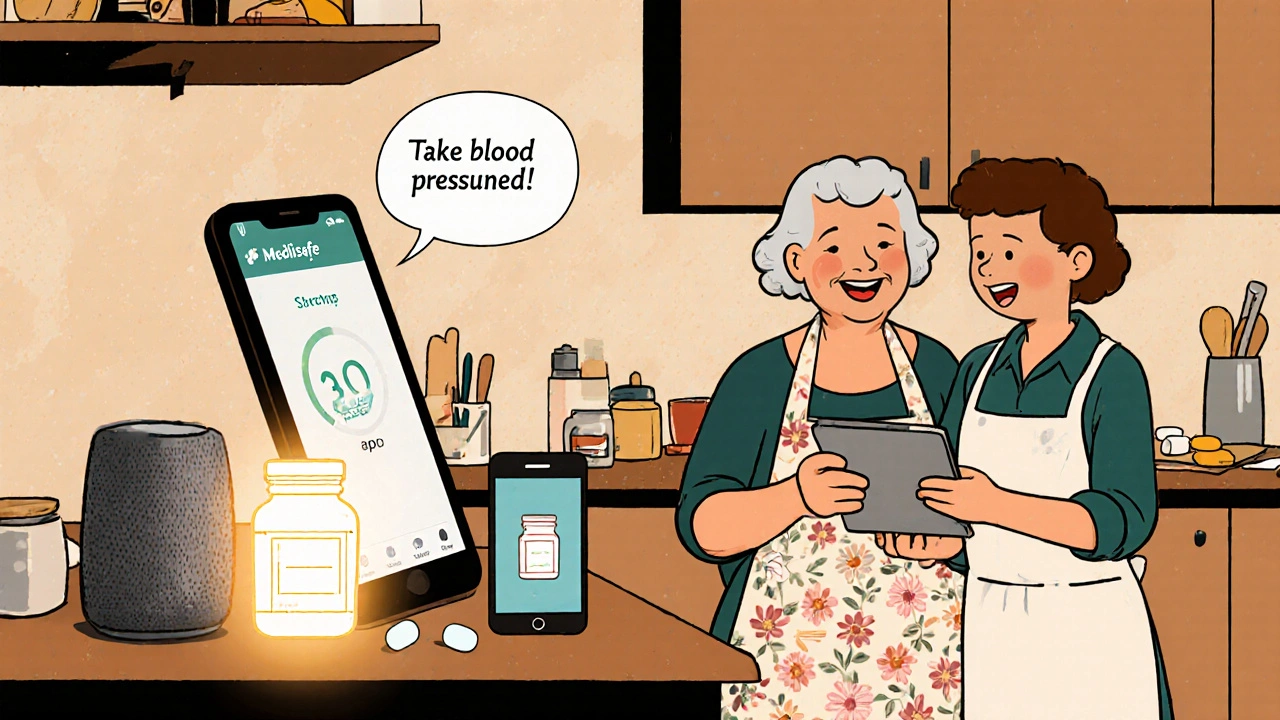
What Users Really Say-Good and Bad
Reddit threads and app store reviews tell the real story. Users love:
- Being able to adjust reminders for shift work or travel
- Seeing a visual calendar of what they’ve taken
- Getting alerts when a new prescription arrives at the pharmacy
But complaints are real too:
- “Battery drains too fast”-23% of iOS users reported this
- “Notifications sometimes don’t come through”-31% of Android users
- “Too many pop-ups. Feels like a chore.”
One user on r/medapps wrote: “I used to miss my blood thinner every other week. Now I haven’t missed one in 8 months. This app saved my life.”
Another: “I set it up for my mom. She’s 72. Took her 22 minutes to learn. Now she uses it without help. I didn’t think she’d get it.”
Who Struggles to Use Them-and Why
Here’s the hard truth: Not everyone benefits equally.
Adults under 50? 68% use medication apps. Adults over 65? Only 29%. Why? Digital literacy, fear of tech, or just not having a smartphone. The same goes for low-income groups. If you can’t afford a reliable phone or data plan, an app won’t help.
Dr. Michael Johnson from the American Pharmacists Association says it plainly: “The people who need these tools most are often the ones left behind by the digital divide.”
But here’s the surprise: In federally qualified health centers serving low-income patients, attrition was low. People stayed with the app-even after 6 months. Why? Because they were given hands-on help setting it up. One 15-minute training session was enough for 87% to use it independently.
It’s not about age. It’s about support.
What to Look for When Choosing an App
Don’t just download the first one you see. Ask yourself:
- Can I customize reminders for each medication, including timing and frequency?
- Does it let me add notes or warnings (like “avoid grapefruit”)?
- Can I share my progress with a caregiver or doctor?
- Is it compatible with my phone? (iOS 13+ or Android 8+)
- Does it have clear help resources? (Avoid apps with no FAQ or support page)
- Is it designed for my condition? (e.g., hypertension, diabetes, epilepsy)
Look for apps that integrate with your pharmacy or electronic health records. That way, your doctor sees your adherence data-not just your word for it.
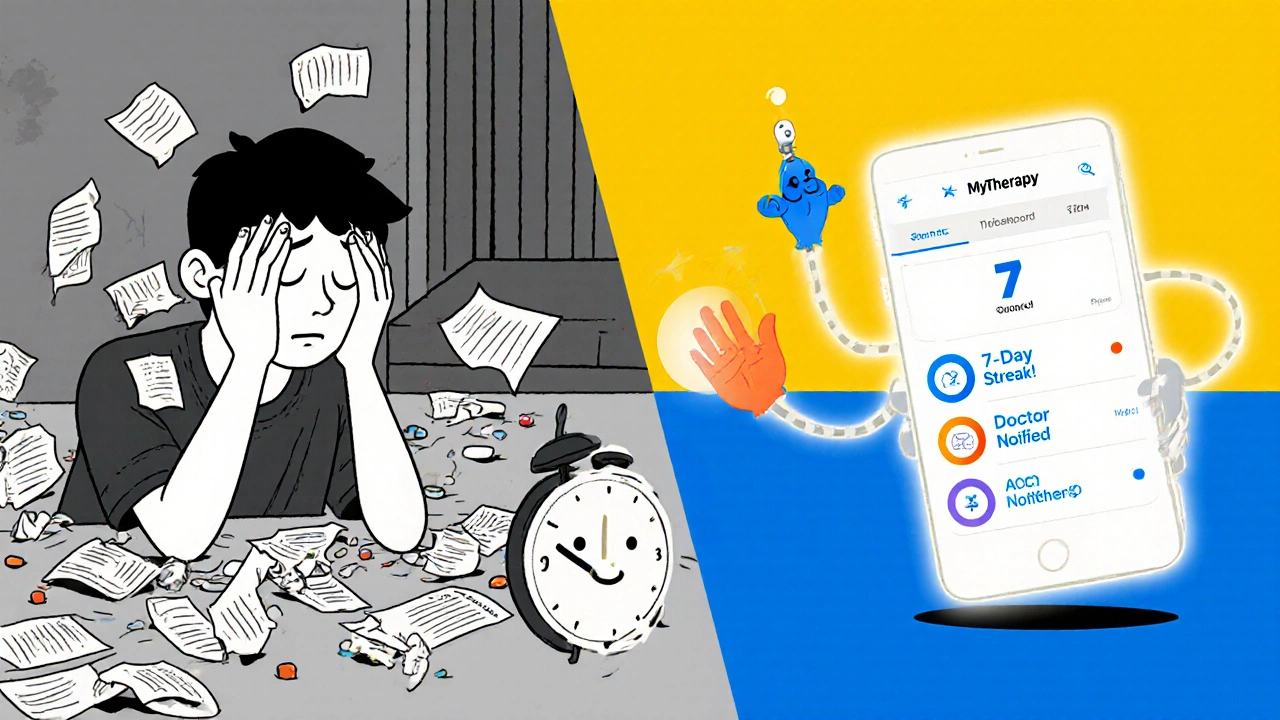
The Bigger Picture: Why This Matters Beyond Your Pill Bottle
Medication non-adherence costs the U.S. healthcare system $300 billion a year. That’s more than cancer care. More than diabetes. More than heart disease treatment combined.
Apps aren’t just convenient. They’re cost-saving. A 2023 NIHR analysis found patients using these tools were twice as likely to take their meds as prescribed. Fewer ER visits. Fewer hospitalizations. Lower insurance premiums over time.
Health systems are catching on. Nearly half of U.S. hospitals now use digital adherence tools. Insurance companies are starting to reimburse for them. In value-based care models, apps that prove results get paid.
And the tech is only getting smarter. By 2027, 35% of apps will connect to smart pill bottles that automatically log when you open them. AI will predict flare-ups before they happen. Voice assistants will remind you while you’re making coffee.
Getting Started: Your Simple 5-Step Plan
- Choose one app from the top five listed above. Medisafe or MyTherapy are safe starting points.
- Download it on your phone. If you don’t have a smartphone, ask a family member or caregiver to help you set it up on theirs.
- Enter every medication you take-including over-the-counter pills, vitamins, and supplements.
- Set reminders for each one. Don’t guess the time-check your prescription label or ask your pharmacist.
- Turn on notifications. Test them. Make sure they ring, vibrate, and show up even when your phone is on silent.
Give it two weeks. If you miss a dose, don’t feel guilty. Just log it in the app. The goal isn’t perfection. It’s progress.
What If the App Doesn’t Work for You?
Not every app clicks. Maybe the interface is too cluttered. Maybe the notifications are too annoying. Maybe you just don’t like using your phone for health stuff.
That’s okay. Try another. Or go analog. Pill organizers with alarms still work. Some pharmacies offer blister packs with days of the week labeled. Your pharmacist can set up automated refill reminders via phone call.
The goal isn’t to use an app. The goal is to take your meds.
Do medication reminder apps really improve adherence?
Yes. Multiple studies, including a 2025 systematic review in JMIR, show that well-designed apps improve adherence by an average of 40% compared to no intervention. Apps outperform traditional methods like paper calendars or basic alarms. The effect is strongest when the app is personalized, tracks progress, and connects to your care team.
Are these apps safe and private?
Top apps like Medisafe and MyTherapy use HIPAA-compliant security: AES-256 encryption for stored data and TLS 1.2+ for data in transit. They don’t sell your health data. Always check the app’s privacy policy and avoid ones that ask for unnecessary permissions like location or contacts.
Can older adults use these apps?
Absolutely. A 2023 NIH study found that seniors in underserved communities successfully used Medisafe after a single 15-minute training session. The key isn’t age-it’s support. Choose apps with large buttons, voice reminders, and simple interfaces like Round Health. Many family caregivers help set them up, and that’s perfectly normal.
Do I need a smartphone to use these apps?
Most apps require a smartphone (iOS or Android). But if you don’t have one, ask a trusted person to help you set up the app on their device and share access. Some apps also offer SMS-based reminders as a backup. Your pharmacist may also offer a phone-based refill reminder service.
What if I forget to log a dose?
It happens. Don’t panic. Most apps let you manually log missed doses later. The point isn’t perfection-it’s awareness. Logging a missed dose helps you spot patterns. Maybe you always forget after lunch. Maybe you skip meds on weekends. That insight helps you adjust your routine or ask your doctor for a simpler regimen.
Are these apps covered by insurance?
Most are free to download. But some health systems and insurers are starting to reimburse for them if they’re prescribed by a doctor. Check with your provider or pharmacy. Apps with proven results-like Medisafe in clinical trials-are more likely to be covered under value-based care programs.
Can these apps replace my pharmacist?
No. They’re tools to support you, not replace professional advice. Always talk to your pharmacist about drug interactions, side effects, or changes to your regimen. Many apps let you message your pharmacist directly or share your log with them-that’s the ideal combo.
Final Thought: It’s Not About Tech. It’s About Trust.
The best medication reminder app won’t fix your adherence if you don’t trust your treatment. If you’re skipping pills because you think they’re unnecessary, or because they make you feel worse, no app will fix that. Talk to your doctor. Ask questions. Get clarity.
But if you know your meds matter-and you just keep forgetting-then a digital tool isn’t a luxury. It’s your lifeline. Pick one. Set it up. Give it a shot. Your future self will thank you.
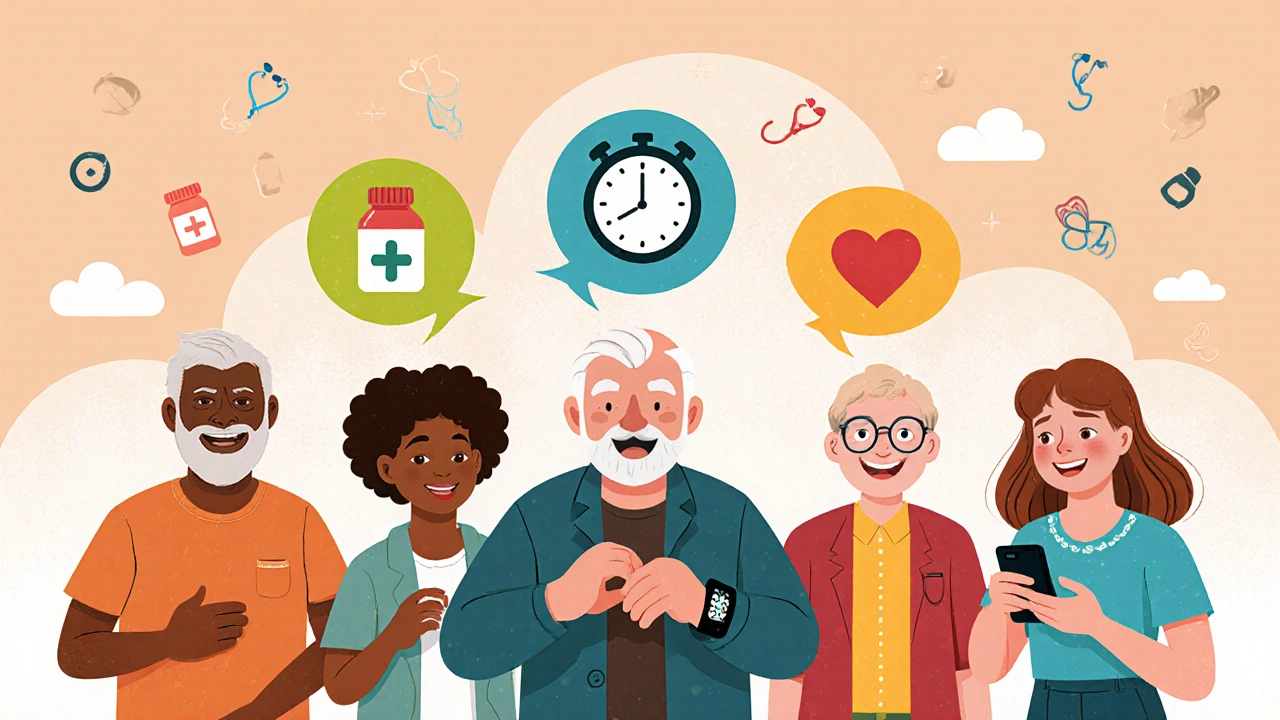
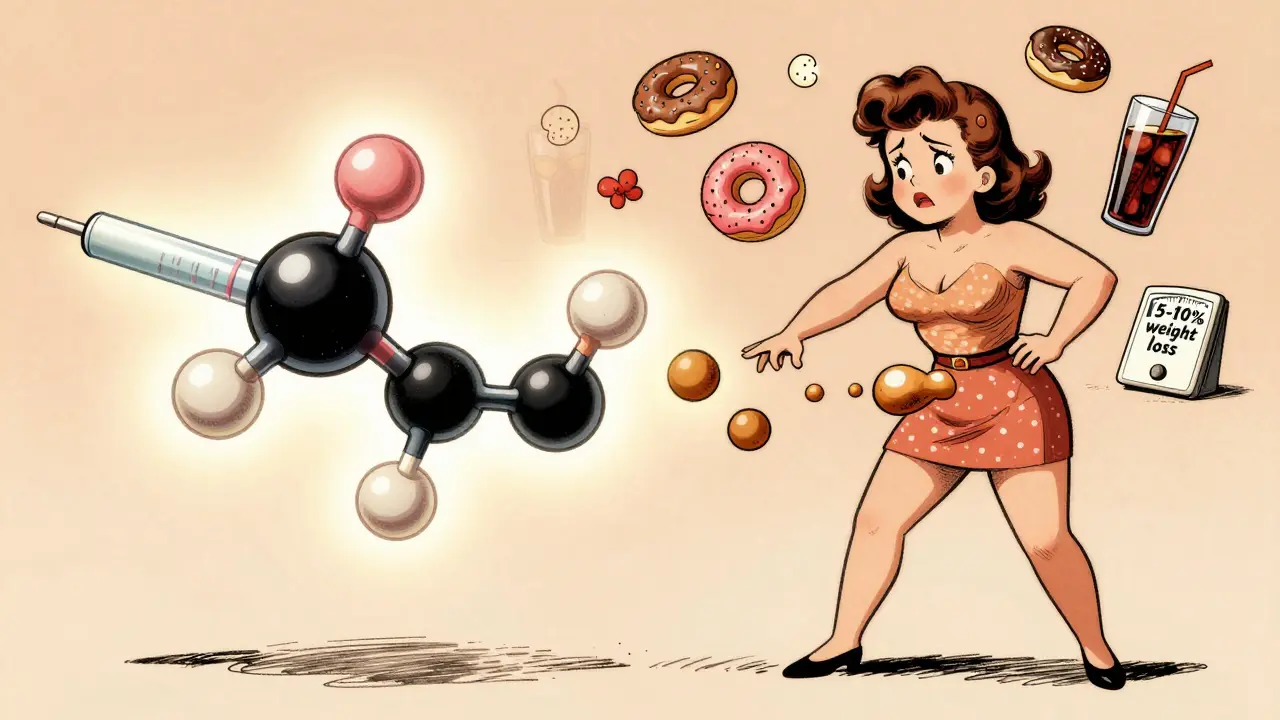
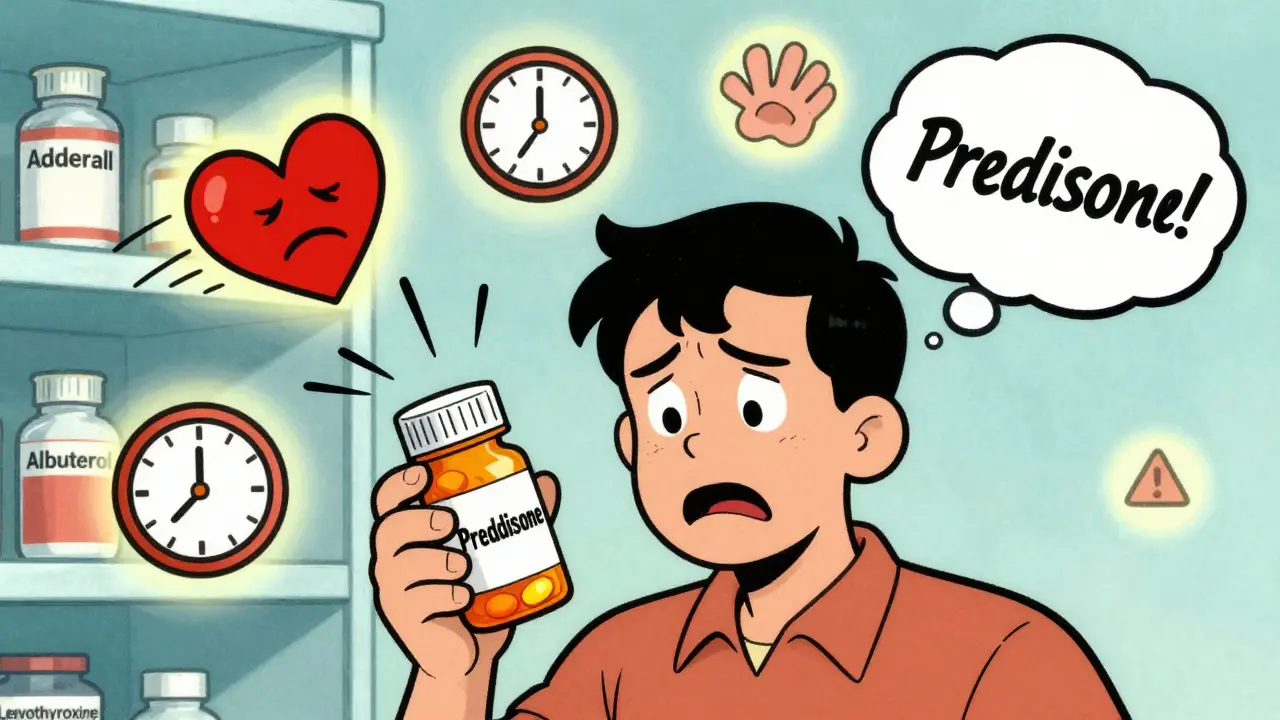
Paula Jane Butterfield
November 21, 2025 AT 20:04i used medisafe for my mom’s blood pressure meds and it literally saved her from another hospital trip. she’s 74, hates phones, but i set it up for her with big buttons and voice reminders. now she gets a text if she misses a dose and i get notified too. no more frantic calls at 2 a.m. asking if she took her pill. also, the app auto-filled her prescriptions from her pharmacy-no more scribbling on sticky notes. thanks for listing round health, i didn’t know it existed.
Simone Wood
November 21, 2025 AT 21:40these apps are just another corporate ploy to monetize your health data under the guise of ‘wellness.’ sure, they say they don’t sell it-but have you read the fine print? ‘We may share anonymized behavioral patterns with third-party partners.’ Anonymized my ass. They know when you skip your antidepressants. They know when you’re stressed. And someone’s monetizing that. Also, battery drain is real-my phone dies by noon with this junk running.
Swati Jain
November 22, 2025 AT 07:53lol at the ‘gamification’ part. you’re telling me i need a badge for taking my blood thinner? next they’ll give me a trophy for brushing my teeth. i’ve been on 7 meds since 2020 and i still forget half the time. apps don’t fix the root problem: our healthcare system is designed to make you feel like a burden. if your meds cost $800/month and your insurance won’t cover them, no ‘reminder’ is gonna help. but hey, here’s a shiny app to distract you while your copay doubles again.
Florian Moser
November 22, 2025 AT 21:05Excellent breakdown. The data is clear: adherence improves by 40% with well-designed apps. The key factors are personalization, integration with care teams, and user-friendly interfaces. Avoid apps that require excessive permissions or lack HIPAA compliance. Medisafe and MyTherapy are the gold standards because they prioritize clinical validation over flashy UI. Also, setting up reminders with specific notes like ‘take with food’ or ‘avoid alcohol’ significantly reduces adverse events. If you’re struggling, start with one app and one medication-don’t try to overload it on day one.
Kartik Singhal
November 23, 2025 AT 19:29😂 app is the future? nah. it’s a scam. smart pill bottles? AI predicting misses? please. they’re just tracking you for insurance companies to raise your premiums. next thing you know, your ‘non-compliance score’ will affect your life insurance. and don’t even get me started on how these apps are coded by interns in Bangalore who don’t even know what ‘hypertension’ means. also, why do all these apps have the same damn logo? someone’s got a monopoly here. 🤫
Logan Romine
November 25, 2025 AT 14:59we’re so obsessed with digitizing everything that we forget humans are messy. you can’t program a reminder for existential dread. what if you skip your meds because you’re tired of being a patient? what if the app’s notifications feel like guilt-trips? what if you just want to forget you’re sick for one day? maybe the real problem isn’t forgetfulness-it’s the weight of chronic illness in a culture that glorifies productivity. apps don’t heal. they surveil. and we’re okay with that because it’s easier than fixing the system.
jim cerqua
November 27, 2025 AT 09:48THEY’RE WATCHING YOU. I WORKED AT A MEDICAL TECH STARTUP. WE HAD A BACKDOOR. NOT FOR HACKERS. FOR INSURANCE AUDITS. EVERY TIME YOU HIT ‘SKIP’ ON A MEDICATION, IT GOT TAGGED AS ‘NON-ADHERENT BEHAVIOR.’ THEN THE ALGORITHM SENT IT TO YOUR INSURER. I SAW A WOMAN GET HER PREMIUMS RAISED BY 300% BECAUSE SHE MISSED TWO DOSES DURING A DEPRESSION EPISODE. THEY CALL IT ‘RISK ASSESSMENT.’ I CALL IT PSYCHOLOGICAL TORTURE. AND NOW YOU’RE ALL OUT HERE DOWNLOADING THESE THINGS LIKE THEY’RE TOY STORIES. 🤬
Julia Strothers
November 28, 2025 AT 08:06These apps are a liberal, tech-bro fantasy. Real Americans don’t need apps to take pills. We have alarms. We have pillboxes. We have family. Why are we outsourcing basic responsibility to Silicon Valley? And why are all these apps designed for iPhone users? What about people who use Android phones from 2018? Or worse-people who can’t afford data? This isn’t innovation. It’s exclusion disguised as progress. Also, why do all these apps have that same pastel color scheme? It’s like they think sick people need to be coddled with emojis. Grow up.
Elaina Cronin
November 29, 2025 AT 13:14While I appreciate the thoroughness of this analysis, I must respectfully challenge the assertion that digital tools are universally beneficial. In my clinical practice, I have observed that patients who receive structured, in-person adherence counseling from pharmacists demonstrate significantly higher long-term compliance than those reliant solely on mobile applications. The human element-empathy, tailored education, and the opportunity to voice concerns-is irreplaceable. Technology may augment care, but it must not supplant it. I urge practitioners to prioritize direct engagement before prescribing digital solutions.